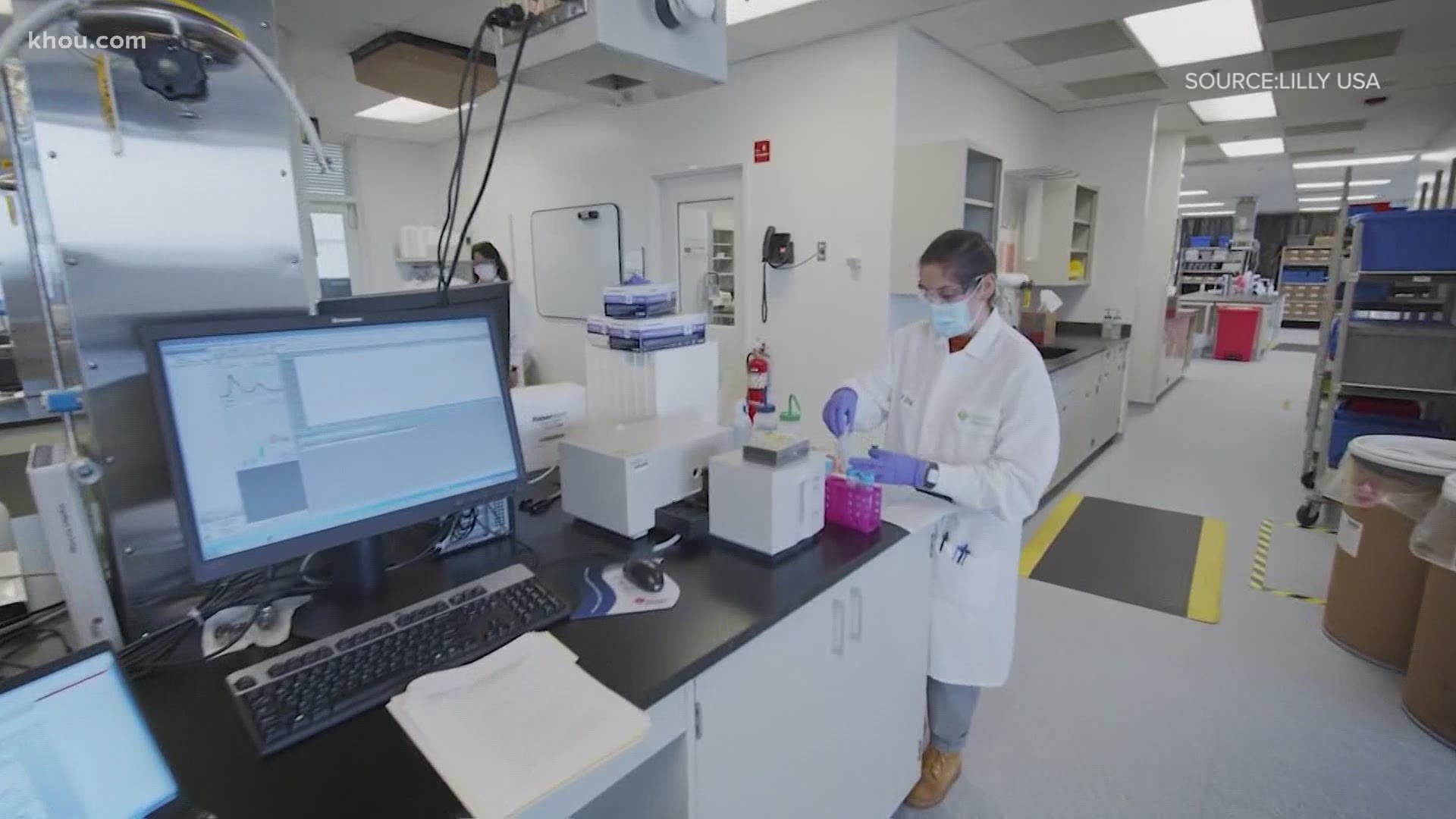HOUSTON — More than 300 hospitals across Texas will receive the experimental antibody treatment for COVID-19, bamlanivimab, according to the Texas Department of State Health Services.
The U.S. Food and Drug Administration authorized bamlanivimab for Emergency Use. Eli Lilly and Company created the drug. It is authorized for for treating mild to moderate COVID-19 in adults and pediatric patients 12 years and older with a positive COVID-19 test, who are at high risk for progressing to severe COVID-19 and/or hospitalization, according to Lilly.
Bamlanivimab should be administered as soon as possible after a positive COVID-19 test and within 10 days of symptom onset. Health care workers give it via intravenous infusion.
Clinical trials showed it could prevent a patient from going to the hospital. That indication could help our health care workers who have been battling the virus for eight months.
“I’m very proud of our people and all the healthcare workers in Houston. They’ve really stepped up to the challenge and continued to provide really great care, but it is wearing, and it’s something we worry about as the pandemic continues to be present," said Dr. David Callendar, President and CEO of Memorial Hermann.
Governor Greg Abbott's office said hospitals in Texas should receive it as soon as next week.
DSHS will allocate this first distribution of bamlanivimab based on three criteria: new confirmed cases of COVID-19 in the community, new lab-confirmed COVID-19 admissions to hospitals, and total lab-confirmed COVID-19 patients in hospitals.
"This initial allotment of bamlanivimab will help health care professionals effectively treat cases of COVID-19 within their communities and aid in reducing hospitalizations," Gov. Abbott said. "I thank the U.S. Department of Health and Human Services for providing Texas with this crucial antibody therapy that will help keep Texans safe and mitigate the spread of COVID-19."
Texas is receiving the second-highest number of shipments of the drug, behind Illinois, according to DSHS.
Hospitals in the Houston and Galveston/Beaumont trauma service areas will receive more than 700 doses. Each patient receives one dose, according to DSHS. A spokesperson said they expect weekly shipments from the federal government.
These weekly shipments of doses have been provided to the state at no cost through the U.S. Department of Health and Human Services.
“It’s going to be a big benefit to us," said Chris Van Deusen, Director of Media Relations for Texas DSHS. “Every time we see a new medication, something that looks promising, it’s a step in the right direction, and we’re one step closer to finally getting through this issue.”
Lilly anticipates manufacturing up to 1 million doses of bamlanivimab 700 mg by the end of 2020, for use around the world through early next year.
- Bamlanivimab is NOT authorized for use in patients:
- who are hospitalized due to COVID-19, OR
- who require oxygen therapy due to COVID-19, OR
- who require an increase in baseline oxygen flow rate due to COVID-19 in those on chronic oxygen therapy due to underlying non-COVID-19 related comorbidity.
Doctors are urging people to be extra diligent with masking and social distancing, even around close friends and family, to prevent a second surge. Dr. Callendar said roughly 50 percent of people who test positive for COVID-19 show no signs of being sick.
“I think we still have time to control this one – keep it from becoming what we saw in the middle of the summer," Dr. Callendar said.
His message comes as Texas' rates of COVID-19 soar back to more than 10,000 cases a day for three straight days. The last time Texas saw those levels was in mid-July, the worst of the pandemic.
“It’s still going to take everybody taking those everyday steps to really put a dent in that big increase in cases we’ve seen recently," Van Deusen said.

